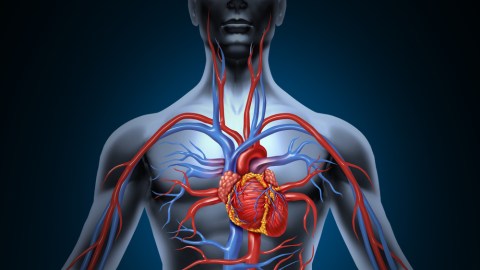From Hacking Computers to Hacking Humans

When we think of “hacking” the human body, most of us probably think of something along the lines of Tim Ferriss and his concept of the 4-Hour Body — little tweaks to our diet and regimen that can lead to giant leaps in human performance. Maybe some of us buy into the concept of the Singularity, and “hacking” the human body means breaking down the distinction between man and machine. However, what if “hacking the human body” also meant subverting the relationship between humans and computers in nefarious ways?
That’s the scenario that’s laid out by Brian Donohue of Kaspersky Lab, a company which is more attuned to hacking scenarios of the conventional variety – malware, bugs and denial of service attacks on computers, networks and websites. Yet, in one scenario described by Donohue, hackers are able to compromise a human insulin pump from a laptop at a distance of 300 feet. In another scenario, hackers are able to sabotage a heart pacemaker, leading to the eventual death of the victim:
“Barnaby Jack demonstrated that he could wirelessly send a signal from his laptop to a pacemaker and advise the device to deliver a potentially fatal shock from inside a patient’s body. The attack arose from a programming error whereby the researcher could send a special command to the pacemaker and the pacemaker would respond with its model and serial number. Once he determined the type of device he was working with, he was able to deliver an 830-volt – potentially fatal – shock to the body in which the pacemaker rested. Moreover, Jack demonstrated that it’s possible to program pacemakers to spread malicious code to other similar devices of the same vendor.”
What’s making all this possible, of course, is our increasing willingness as a human species to augment ourselves with computers in the form of tiny medical devices embedded within our bodies. The more we implant computers inside of ourselves, and the more we rely on computer chips to monitor our human bodies for health, the more opportunities there are for others to “hack” into our bodies.
As Ray Kurzweil of Singularity fame has famously noted, we are less than a decade away from the day when the distinction between man and machine forever blurs. We will increase our intelligence with the help of microprocessors implanted in our brains, we will increase human life span by implanting tiny nano-doctors inside of our blood stream, and we will perform rare feats of strength and endurance, thanks to other hacks of the human body.
Yes, and we will also expose ourselves to potential hackers.
So far, mind you, all of this is in the realm of pure speculation, although several papers about ways to exploit embedded medical devices are already starting to circulate and even Kurzweil has warned about the ability of medical nanobots to behave in certain ways without our knowledge. So far, as Donohue points out, the types of people who would hack a human body would do so for profit, not for fun. And right now, there’s not any known way to make cold, hard cash by hacking another human body.
But doesn’t it reason that if computer hacks can be used for good, they can also be used for evil?
Of course, nobody really expects people to start murdering and assassinating people by attacking medical devices anytime soon – although, presumably, some Black Ops team will try something out on a despised (and sickly) world leader somewhere. But here’s one possible example of how a human could be hacked for profit: What if you are a professional sprinter looking for an edge in your next race? Couldn’t you hack a rival sprinter in the starting blocks for the few-tenths-of-a-second needed to win the race? (Much more technologically savvy than hiring someone to whack your rival on the knee)
This is not to suggest that we should be putting the brake on the Singularity — that genie is already out of the bottle. Rather, it’s just a recognition that the “hack” has become a feature of everyday life – our Twitter accounts get hacked, our bank accounts get hacked, our news sites get hacked, our Facebook pages get hacked… so why not our human bodies?
Image: Human circulation cardiovascular system / Shutterstock




